There is a wide range of tires types and size available from popular brands such as Bridgestone, Dunlop, Goodyear, Michelin, and Pirelli. It pays to know what is currently on your vehicle and to learn about your options. There are three basic types of tires--car, truck, and winter--and each has a few choices in each category.
Car tires
The choice of a car tire depends on how you drive, the type of tire included with your car, and the performance you want.
All-season tires
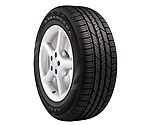
come in sizes to fit everything from small cars to light-duty SUVs and pickups. They are a popular choice for many older vehicles and are for drivers who want year-round traction, long tread wear, and a comfortable ride. But they typically lack the precise handling and grip of performance tires.
Speed Ratings: None, S (112 mph), T (118 mph)
Tread-wear warranty: None or 40,000 to 100,000 miles
Typical wheel size: 14 to 17 inches
Performance all-season tires
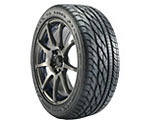
have a higher speed rating than standard all-season tires. They generally provide better handling and braking, and usually have a lower profile (shorter sidewall height) and a wider footprint. They are a popular choice for many newer cars.
Speed Ratings: H (130 mph), V (149 mph)
Tread-wear warranty: None or 40,000 to 60,000 miles
Typical wheel size: 15 to 17 inches
Ultra performance tires
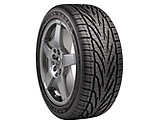
are commonly fitted to upscale sedans or sporty vehicles. These tires are designed to provide good handling and responsive steering in wet and dry conditions, but the tread wear and ride comfort are common compromises. Summer versions are not intended for cold weather and won't grip in snowy or icy conditions. All-season versions tend to provide a compromise of dry and wet grip relative to summer tires for all weather conditions.
Speed Ratings: ZR (more than 149 mph), W (168 mph), Y (186 mph)
Tread-wear warranty: None or 30,000 to 40,000 miles
Typical wheel size: 17 to 22 inches
Truck tires
Because of their size, dynamics and how they are used, trucks and SUVs often require special tires. Some automakers advise sticking with the tire type that the vehicle originally came with. Consult the owner's manual to see if a specific type is recommended. You can often improve road handling by switching from an all-terrain tire to an all-season.
All-season truck tires
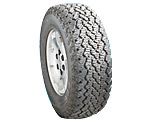
are well rounded and are good for road driving. They are designed to perform reasonably well in most conditions.
All-terrain tires
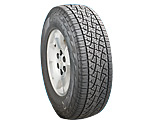
are suited to paved roads and light-duty off-road use. They provide added traction on unpaved and snowy roads.
Speed ratings: S (112 mph) for many.
Tread-wear warranty: None or 40,000 to 60,000 miles.
Typical wheel size: 15 to 20 inches.
Winter tires
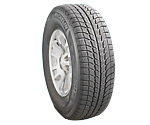
If you drive often in wintry or icy conditions, then winter tires might make sense for you. Winter tires typically have faster tread wear than all-season tires because the tread is specifically designed to bite into snow and ice, and the rubber is formulated to stay pliable at freezing temperatures. Winter tires have a mountain/snowflake symbol on the sidewall. It indicates that they passed an industry test for severe snow use. All the winter tires we tested carry that symbol. Don't be misled by the M&S (mud and snow) designation found on the sidewalls of a tire. That doesn't mean it's a winter tire; it means only that the tire has a relatively open tread pattern.
Winter tires have treads with more biting edges for better grip on snow and ice, while their softer compound remains flexible even in extremely low temperatures. But on cleared roads, they might not grip as well as all-season tires and they often wear more quickly.
Performance winter tires
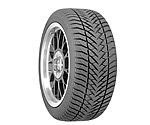
provide higher levels of snow and ice grip, but keep some of the handling and cornering capabilities of performance tires.
Speed Ratings: Q (99 mph) and higher
Tread-wear warranty: None
Typical wheel size: 14 to 18 inches





